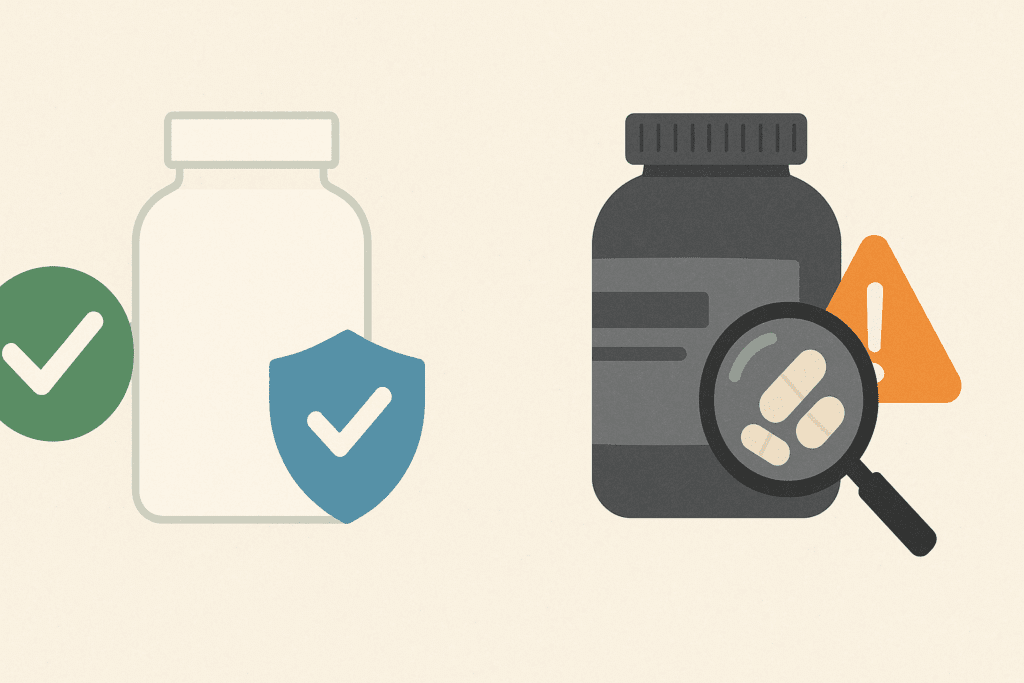Athletes at every level, from recreational runners to elite competitors, constantly seek strategies to improve their endurance, maximize performance, and accelerate recovery. In the realm of modern fitness and sports science, nutritional sports supplements have emerged as a prominent tool to help individuals reach these goals. But rather than simply relying on hype, the use of these supplements must be grounded in science, strategy, and safety. This article explores how sports supplements can be used to naturally enhance athletic performance, with a focus on their role in endurance and stamina training, as well as overall physical and mental performance enhancement.
You may also like: Build Strength that Lasts: Best Supplements for Stamina and Endurance Backed by Science

The Rise of Nutritional Sports Supplements in Modern Athletics
Over the past two decades, nutritional sports supplements have gained substantial popularity across various athletic disciplines. These products, ranging from protein powders to creatine blends and electrolyte-enhanced hydration formulas, are now common in gyms, locker rooms, and endurance training regimens. Unlike pharmaceutical interventions, which may carry a host of side effects or require medical oversight, sports supplements are designed to support and enhance the body’s natural functions. This distinction makes them particularly attractive for athletes seeking to optimize their training outcomes without compromising long-term health.
Part of their growing acceptance is linked to the expanding body of evidence supporting their efficacy. Studies have shown, for example, that supplementing with branched-chain amino acids (BCAAs) can reduce muscle soreness and delay fatigue in endurance athletes. Similarly, creatine monohydrate, long revered for its muscle-building capabilities, is now also recognized for its role in improving high-intensity performance and aiding recovery. These scientifically validated benefits are helping to shift the perception of sports supplements from fringe aid to mainstream necessity in competitive sports environments.
Additionally, the growing consumer demand for natural and plant-based products has influenced the supplement industry to innovate. Today’s athletes have access to a wide range of clean, minimally processed, and often organic sports supplements, which support health-conscious lifestyles and performance objectives alike. As consumers become more educated and discerning, they also look for products that provide transparent labeling, third-party testing, and evidence-backed claims. These trends underscore a broader movement toward aligning performance enhancement with holistic well-being.

How Sports Supplements Improve Endurance Capacity
Endurance is the cornerstone of performance in many sports, from long-distance running and cycling to swimming and triathlon. Improving endurance isn’t solely about spending more time on the track or in the pool; it also involves optimizing the body’s metabolic efficiency, reducing fatigue, and ensuring that energy systems remain supported during sustained effort. Nutritional sports supplements can play a vital role in each of these areas.
Carbohydrate-based supplements, such as energy gels and drinks, are commonly used to maintain blood glucose levels and replenish glycogen stores during prolonged activity. This is particularly important in endurance events lasting longer than 90 minutes, where energy depletion becomes a limiting factor. Beta-alanine, an amino acid that enhances intramuscular carnosine levels, has also been shown to buffer acid buildup in muscles, allowing athletes to train at high intensities for longer periods before experiencing fatigue.
Electrolyte supplements help replace the sodium, potassium, and magnesium lost through sweat, which is critical for maintaining hydration and preventing muscle cramps. These are especially important in hot and humid conditions or during ultra-endurance events where fluid loss can be significant. In addition, caffeine—one of the most researched performance aids—can improve endurance by increasing alertness, reducing perceived exertion, and enhancing fat oxidation, allowing for more efficient energy use during exercise.
What distinguishes high-quality sports supplements from generic options is not only their formulation but also their bioavailability—the body’s ability to absorb and use the nutrients. Products that combine fast-absorbing carbohydrates with electrolytes, amino acids, or adaptogens can offer multifaceted support for endurance athletes, delivering both immediate energy and long-term stamina. By integrating these into a training routine, athletes can push their limits while minimizing the physiological stress associated with prolonged effort.

Supporting Muscle Recovery and Reducing Fatigue Naturally
Performance gains occur not just during exercise, but in the periods between sessions when the body recovers and adapts. Nutritional sports supplements that support muscle recovery are therefore a critical part of any performance-enhancement strategy. These include protein powders, which supply essential amino acids for muscle repair, and anti-inflammatory nutrients such as omega-3 fatty acids and turmeric-derived curcumin.
Post-exercise recovery is a complex process involving the replenishment of energy stores, repair of damaged muscle fibers, and reduction of inflammation. Protein supplements, particularly those derived from whey or plant-based sources like pea and rice, are valuable because they provide the building blocks—amino acids—needed for tissue repair. Consuming these within a 30-minute post-workout window has been shown to significantly improve recovery outcomes.
Nutritional sports supplements such as tart cherry juice and magnesium also support faster recovery. Tart cherries are rich in anthocyanins, compounds with potent anti-inflammatory and antioxidant effects that can reduce muscle soreness and accelerate the return to peak performance. Magnesium, a mineral involved in over 300 enzymatic reactions in the body, supports muscle relaxation and neuromuscular function, which is especially important in preventing cramps and promoting restful sleep—a key component of recovery.
In endurance sports, managing cumulative fatigue is just as important as peak performance. Adaptogenic herbs such as ashwagandha and Rhodiola rosea have gained attention for their ability to enhance stress resilience and mitigate fatigue. While these are not traditional sports supplements in the strictest sense, their inclusion in recovery-focused formulations reflects a more holistic view of athletic health, integrating mental and physical aspects of performance.

Enhancing Performance with Cognitive and Mental Edge Supplements
Athletic performance isn’t limited to physical capacity. Mental resilience, focus, and reaction time are equally essential, particularly in competitive environments where split-second decisions can determine outcomes. Nutritional sports supplements that support cognitive function are increasingly being recognized for their performance-enhancing potential.
Nootropic ingredients—substances that support brain health—are making their way into sports nutrition, especially products aimed at enhancing pre-game focus or in-competition sharpness. Ingredients like L-theanine, found in green tea, and citicoline, a compound involved in brain metabolism, can promote calm focus and mental clarity without the jittery effects associated with high doses of caffeine. When paired with moderate caffeine intake, these compounds can offer synergistic benefits, improving attention and reaction time while minimizing stress-induced performance declines.
Omega-3 fatty acids, particularly those rich in EPA and DHA, also support brain function, mood regulation, and neural efficiency. For athletes under high stress or dealing with performance anxiety, these benefits can translate into better concentration, more consistent training, and improved in-game execution. Emerging research even suggests that omega-3 supplementation may reduce the risk of concussion-related inflammation, a topic of particular relevance in contact sports.
By addressing the mental dimensions of performance, athletes can gain an edge that complements their physical conditioning. This mind-body synergy is especially important in sports that demand tactical thinking, sustained concentration, or rapid decision-making under pressure. Incorporating these supplements into an athlete’s regimen promotes a more integrated approach to peak performance.

Natural Energy Support and the Role of Plant-Based Ingredients
For many athletes, sustaining high energy levels throughout training and competition is a daily challenge. While caffeine remains the most widely used ergogenic aid, it is not the only option—and often not the best one for every individual. Nutritional sports supplements that draw on plant-based ingredients can provide more balanced, sustainable energy support without the risks of overstimulation or energy crashes.
Maca root, for example, has been used for centuries in traditional Andean cultures to support stamina and vitality. Modern studies suggest it may improve energy levels, reduce fatigue, and even support hormonal balance—factors that are critical for both male and female athletes. Likewise, beetroot powder is known to enhance nitric oxide production, which improves blood flow, oxygen delivery, and muscular endurance.
Green tea extract, another plant-based ingredient, provides both antioxidant protection and gentle energy enhancement. Its catechins help reduce oxidative stress caused by intense training, while the combination of caffeine and L-theanine supports alertness without inducing anxiety. These dual benefits make green tea extract a versatile ingredient in energy-focused sports supplements.
Plant-based supplements not only offer performance support but also align with the dietary preferences of many athletes pursuing vegetarian, vegan, or flexitarian diets. As the industry evolves, more formulations are being designed with natural, non-synthetic ingredients that deliver effective results without compromising health values or ethical considerations. This trend is helping athletes access clean, efficient energy sources that are aligned with long-term wellness.

Safety, Efficacy, and Choosing the Right Supplements
With the market flooded with countless options, choosing the right nutritional sports supplements requires discernment and an evidence-based approach. Not all supplements are created equal, and some may contain ineffective doses, unproven ingredients, or even banned substances. Therefore, ensuring product safety and efficacy is essential for athletes at all levels.
Look for supplements that are third-party tested by organizations such as NSF Certified for Sport or Informed-Sport. These certifications indicate that products have been tested for purity, potency, and banned substances, providing an added layer of security for competitive athletes. Transparency in labeling is also crucial. Reputable brands clearly list all active ingredients, including the amounts used, and avoid proprietary blends that mask under-dosing.
Understanding one’s individual needs is another key aspect of supplement selection. For example, an endurance runner training for a marathon may benefit more from electrolyte formulas and beta-alanine than from creatine, which is more suited to strength athletes. Consulting with a sports dietitian or certified nutrition professional can help tailor a supplement plan that aligns with specific goals, training intensity, and health history.
Informed choices about supplements also require ongoing education. Athletes should stay updated on new research, be aware of any changes to anti-doping regulations, and continually assess how their supplements are impacting performance and recovery. This commitment to knowledge and responsibility not only ensures better results but also reflects the core principles of ethical, high-performance training.
Frequently Asked Questions (FAQ) on Nutritional Sports Supplements
- How do nutritional sports supplements influence long-term athletic development? Nutritional sports supplements play a more significant role in long-term development than many athletes realize. When incorporated strategically over time, they can support not just short bursts of performance but sustained physiological adaptations. For example, consistent use of high-quality protein supplements can lead to enhanced muscle fiber integrity and recovery efficiency, laying a solid foundation for progressive training cycles. Similarly, adaptogenic ingredients in some sports supplements help the body handle chronic training stress, which is essential for long-term endurance gains. Athletes who view supplementation as a consistent investment rather than a quick fix tend to see more sustainable performance improvements.
- Can nutritional sports supplements support immune function during intense training periods? Yes, sports supplements can be tailored to support the immune system, which is often compromised during heavy training loads. Intense physical exertion temporarily weakens the immune response, increasing susceptibility to illness. Supplements containing vitamin C, zinc, and glutamine are commonly used to reinforce immune resilience during such periods. Additionally, some nutritional sports supplements now include functional ingredients like beta-glucans or medicinal mushrooms to further modulate immune activity. Athletes prioritizing immune health in their supplement strategy often experience fewer disruptions in training schedules due to illness.
- Are there gender-specific considerations when choosing sports supplements? Absolutely. While the basic principles of supplementation apply across the board, physiological differences between genders warrant tailored approaches. For example, women may benefit more from iron-rich nutritional sports supplements, especially if they experience fatigue related to low ferritin levels. Men, on the other hand, may see enhanced results from supplements that support testosterone regulation, such as zinc or fenugreek. Hormonal cycles, bone density, and energy metabolism differ between genders, and effective supplement plans should reflect those nuances. Gender-aware supplementation can help ensure optimal performance and recovery.
- How can athletes avoid developing a psychological dependency on sports supplements? While nutritional sports supplements are beneficial, it’s essential for athletes to maintain a balanced mindset about their role. A psychological dependency can develop when individuals begin to associate performance solely with supplementation, neglecting foundational aspects like training, nutrition, and rest. To avoid this, supplements should be framed as tools rather than crutches. Rotating supplement cycles, practicing occasional periods without certain products, and focusing on whole food nutrition can reinforce autonomy and body awareness. Coaches and nutrition professionals can also help by emphasizing education and informed decision-making around supplement use.
- What are some overlooked factors that influence the effectiveness of nutritional sports supplements? Many athletes underestimate how factors like timing, digestion, and nutrient interactions affect supplement efficacy. For instance, taking fat-soluble vitamins without dietary fat can significantly reduce absorption. Likewise, consuming protein immediately after a workout may yield better muscle synthesis than delaying intake. Certain compounds, such as calcium and iron, can inhibit each other’s absorption if taken simultaneously. Even gut health can influence how well the body utilizes sports supplements, particularly those with micronutrients or herbal extracts. A more comprehensive understanding of these dynamics allows for more effective supplementation strategies.
- How do environmental conditions impact the need for certain sports supplements? Environmental factors like altitude, temperature, and humidity can change an athlete’s supplement requirements. Training in hot conditions increases electrolyte loss, making sodium and magnesium-containing sports supplements especially valuable. At higher elevations, the body requires more antioxidants and iron to adapt to oxygen-depleted conditions. Cold weather may elevate energy needs, thus increasing reliance on carbohydrate-based nutritional sports supplements. Tailoring supplementation to match environmental demands ensures consistent performance and reduces the risk of stress-related injury or illness. This approach reflects a nuanced, athlete-centered application of nutritional science.
- Can nutritional sports supplements improve sleep quality and nighttime recovery? Interestingly, some sports supplements now target sleep enhancement as part of a comprehensive recovery strategy. Ingredients like magnesium, L-theanine, and glycine have been shown to promote deeper, more restorative sleep. Since sleep is the body’s most powerful recovery mechanism, optimizing this aspect can significantly improve athletic performance over time. Additionally, certain protein supplements taken before bed can provide sustained amino acid delivery throughout the night. This extended nutrient availability supports overnight muscle repair and hormonal balance. Integrating sleep-focused supplements into an athlete’s routine can be a game-changer for recovery and resilience.
- What is the role of gut health in the effectiveness of nutritional sports supplements? The digestive system plays a pivotal role in determining how well sports supplements are absorbed and utilized. A compromised gut lining, imbalanced microbiota, or chronic inflammation can all hinder nutrient uptake. Probiotic-rich supplements or those containing prebiotic fibers are increasingly included in modern formulations to address this issue. Additionally, digestive enzymes in some products enhance the breakdown and assimilation of proteins, carbohydrates, and fats. Optimizing gut health ensures that the active ingredients in nutritional sports supplements are delivered efficiently to target tissues, enhancing their effectiveness and value.
- Are there emerging technologies transforming the delivery of sports supplements? Yes, the sports nutrition industry is embracing innovative delivery methods that go beyond traditional pills and powders. Liposomal encapsulation, for instance, enhances the bioavailability of nutrients by encasing them in fat-like particles that are easily absorbed. Time-release capsules and nanotechnology-based supplements are also gaining traction for their ability to maintain consistent plasma levels of key compounds. These technologies allow for more precise and efficient nutrient delivery, reducing the need for high doses and minimizing side effects. As personalization becomes a cornerstone of supplementation, these advances offer exciting possibilities for athlete-centered solutions.
- How can athletes verify the quality and legitimacy of their sports supplements? With the proliferation of supplement brands, ensuring product integrity is crucial. Athletes should prioritize products certified by independent third-party organizations like NSF Certified for Sport, Informed-Sport, or BSCG. These certifications verify that nutritional sports supplements are free from banned substances and contaminants. Beyond certifications, athletes should look for full transparency in labeling, including the absence of proprietary blends that mask ingredient quantities. Customer reviews, batch-specific testing, and brand reputation can also provide valuable insights. Taking these steps not only supports performance but also safeguards long-term health and competitive eligibility.
Conclusion: Maximizing Endurance and Performance Through Smart Supplementation
As the science of athletic performance evolves, the role of nutritional sports supplements continues to expand. These products are no longer viewed as optional extras or quick fixes but as integral components of a comprehensive training strategy. From enhancing endurance and accelerating recovery to sharpening cognitive performance and supporting natural energy levels, sports supplements offer multifaceted benefits when used intelligently and responsibly.
Importantly, the most effective use of these supplements requires more than a generic recommendation—it demands a personalized, evidence-based approach grounded in both science and experience. Athletes must be discerning, informed, and proactive in selecting supplements that align with their individual needs, training regimens, and health values. With proper use, nutritional sports supplements can help athletes train harder, recover faster, and compete at their best—all while maintaining a commitment to natural, sustainable performance enhancement.
Ultimately, the goal is not to replace hard work or sound nutrition but to support them. When integrated wisely, these supplements become powerful allies in the pursuit of peak endurance and performance. In a world where competitive edges are measured in fractions of a second or millimeters of progress, smart supplementation can make all the difference.
Was this article helpful? Don’t let it stop with you. Share it right now with someone who needs to see it—whether it’s a friend, a colleague, or your whole network. And if staying ahead on this topic matters to you, subscribe to this publication for the most up-to-date information. You’ll get the latest insights delivered straight to you—no searching, no missing out.
Further Reading:
Can sports nutrition supplements improve your performance?
Dietary Supplements for Exercise and Athletic Performance
Vitamins and Supplements For Athletes: Providing an Athletic Edge

